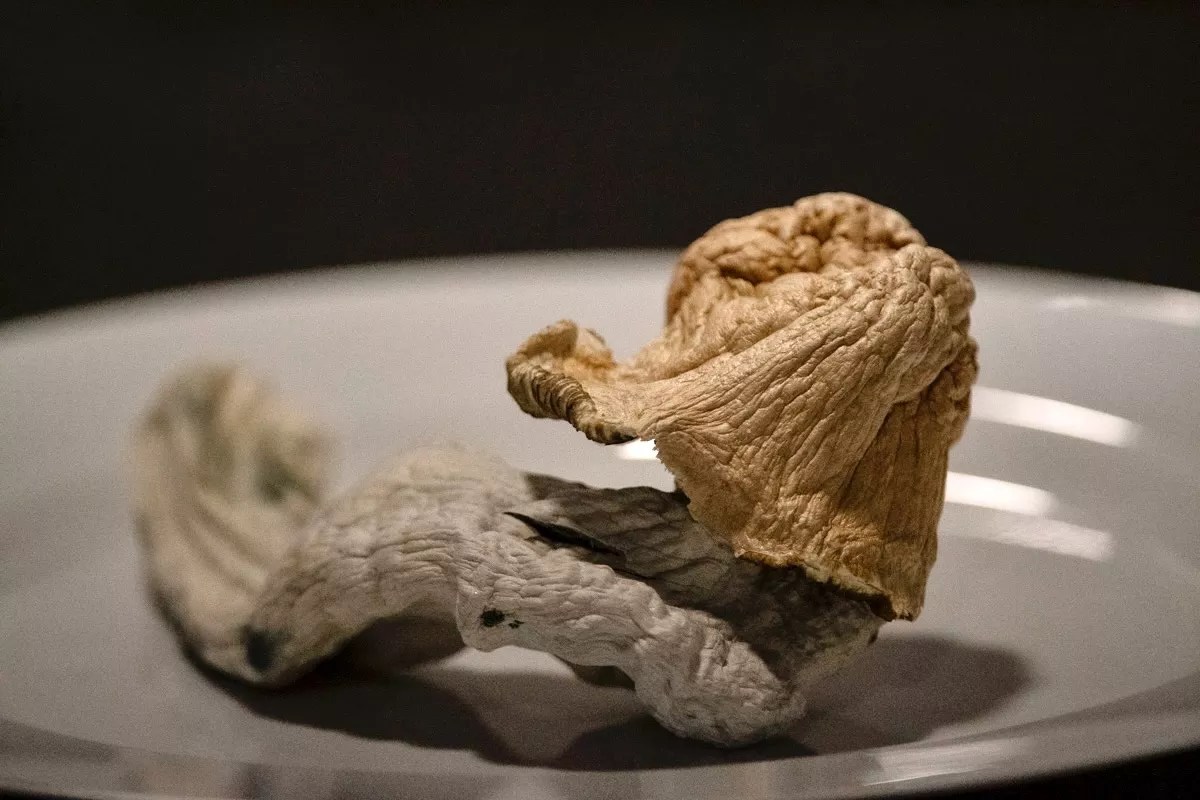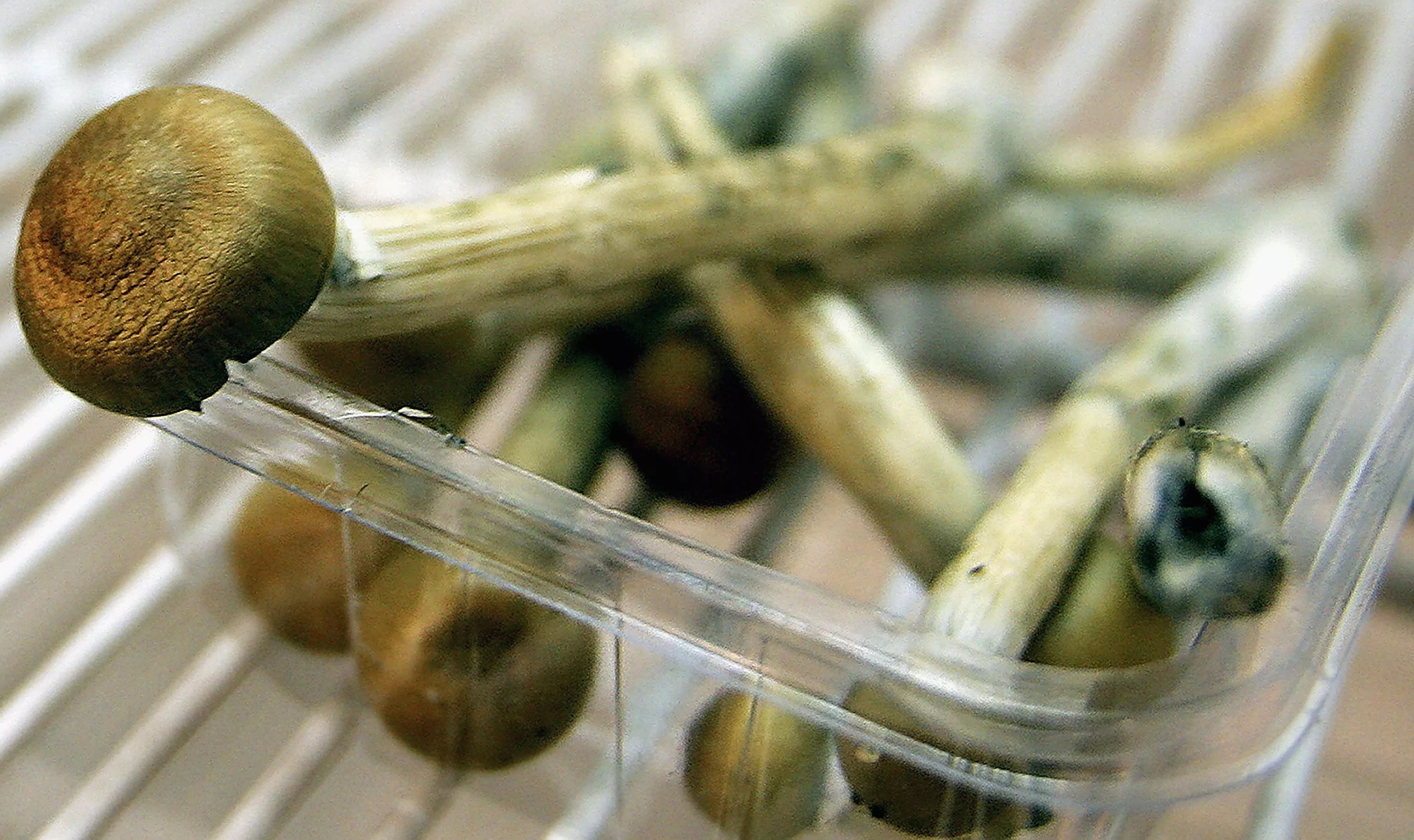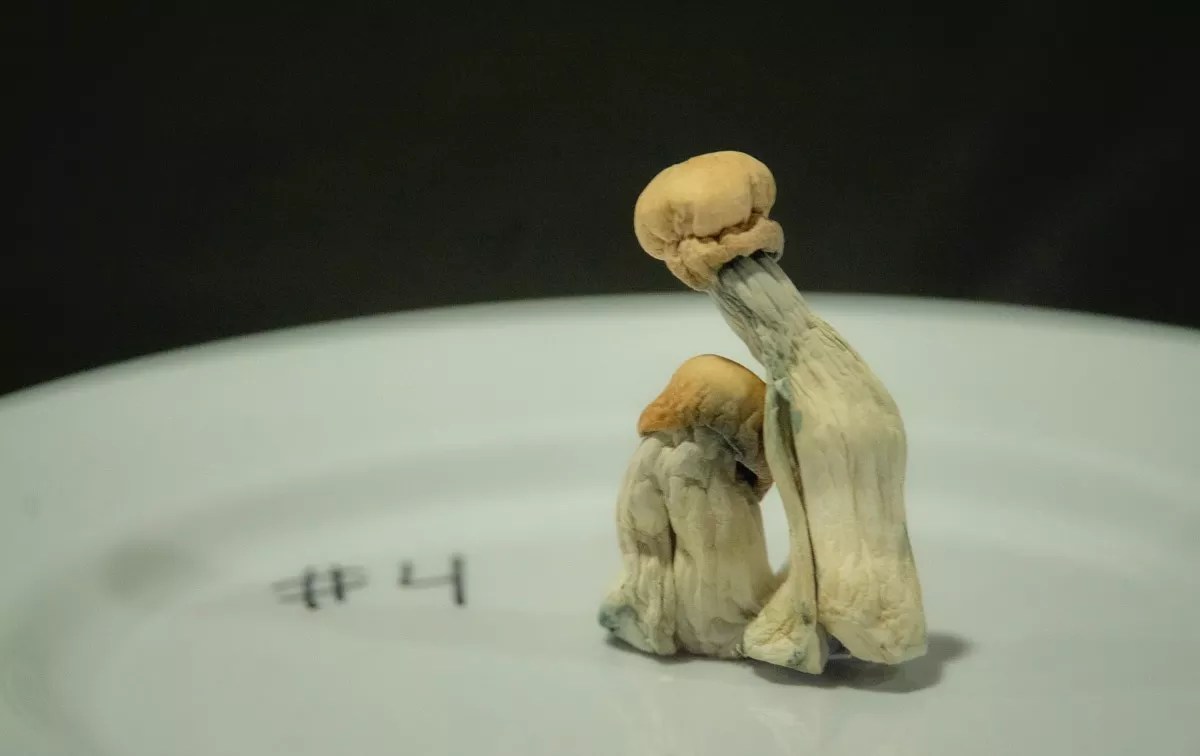
Evan Semón

Audio By Carbonatix
Arizona lawmakers have mushrooms on their mind.
A bipartisan group of state senators signaled its broad support for a bill making its way through the legislature that legalizes psilocybin mushrooms under controlled, therapeutic settings. Studies have found that psilocybin can be useful in treating mental illnesses such as post-traumatic stress disorder and depression.
The Arizona Senate passed Senate Bill 1570 on Feb. 29 by a vote of 24-4, with two members not voting. The bill moved to the House and was assigned to the Heath and Human Services Committee on Monday.
Two weeks before the Senate vote, the Senate Health and Services Committee voted unanimously to recommend approval of the bill. Republican state Sen. Thomas “T.J.” Shope, the principal sponsor of the bill, led the hearing.
“We just had a press conference on this issue out on the lawn that was probably the most well-attended press conference we’ve had all session long,” Shope said during the Feb. 13 meeting. “That tells me there is a desire to explore what treatment for PTSD looks like other than what is already available to Arizonans.”
Psychedelic-assisted therapy is not limited to treatment for PTSD. The Arizona Department of Health Services was allotted $5 million in 2023 from the state’s $18 billion budget to conduct clinical trials on the effects of psilocybin mushrooms in treatment for autoimmune disorders, depression, anxiety, substance abuse and chronic pain, among other conditions. The $5 million in funding came after a bill that would have provided $30 million for natural psilocybin research failed to pass.
A quirk in the funding, though, means that researchers would need to spend grants from the $5 million by the end of the state’s budget year, which is June 30. Supporters of the funding said that’s not enough time. A legislative fix extending the deadline to 2026 – House Bill 2105 – has stalled in the House.

The medical benefits of magic mushrooms are getting serious attention by Arizona lawmakers.
Daniel Berehulak / Getty Images
‘Psilocybin not typically a substance of dependence’
SB 1570 would establish the Arizona Psilocybin Advisory Board, tasked with approving training programs to license health care professionals in psilocybin-assisted therapy centers. The bill calls for appointments to the APAB to be made by the end of this year.
According to the bill, the Arizona DHS can begin accepting applications to license health care professionals on Jan. 1, 2026. Only medical doctors, nurse practitioners, physician assistants and naturopaths would be allowed to prescribe psilocybin.
“During my time as a psychiatric provider, I’ve become acutely aware of how limited our treatment options are for effective mental health interventions, both pharmaceutical and psychotherapeutic,” said Jennifer Montjoy, an Arizona psychiatric nurse practitioner, during the Senate committee meeting in February.
“Roughly half of patients treated for a major depressive disorder and PTSD do not respond to available treatment options,” she added. “They’re considered treatment-resistant.”
During the meeting, Montjoy noted that psychedelic-assisted therapy usually consists of one or two sessions. It is meant to be a short-term treatment, in contrast with some forms of talk therapy or prescription medications.
“Though psilocybin is used recreationally, due to the intensity and duration of high-dose experiences, it’s not typically a substance of dependence,” she said. “It’s also not a substance of ongoing, repeated misuse.”
Montjoy considers psilocybin a nonaddictive intervention, and she mentioned its potential application for treating anxiety disorders, obsessive-compulsive disorder, end-of-life anxiety and substance misuse, in addition to PTSD. She addressed fears of possible dependence by saying that withdrawal from the use of psychedelics has not been observed in studies.
Other states have been early adopters of mushroom use. Oregon passed a measure in 2020 that decriminalized hard drugs and allowed psilocybin mushrooms to be used in therapeutic settings. And in 2022, Colorado decriminalized the possession, growing and use of five natural psychedelic substances, including psilocybin. The measure allows for the use of psychedelic mushrooms in licensed facilities by late this year.

A psilocybin mushroom displayed at a growing competition in Denver last November.
Evan Semón
Arizona’s opportunity to be a pioneering state
Jimmy Nguyen is the Colorado-based co-founder of Psychedelic Passage, a site that provides information and referrals to people interested in healing through psychedelics. Both Nguyen and Montjoy acknowledge that embracing the use of psychedelics will not be a magic cure for PTSD or depression, and it isn’t for everyone, though it does provide another tool in addition to traditional treatment options.
“Arizona has the opportunity to be one of those pioneering states that say, ‘Hey, how does this work for Arizona?'” Nguyen said. “‘How does this work for us and the people who live here?'”
Nguyen, who has experience both as a facilitator and as a “journeyer” – a user of psychedelics for healing purposes – cited a number of factors to think about when determining whether psychedelics are the right treatment option. These include family attitudes as well as life and medical history.
When vetting facilitators for his organization, Nguyen looks for certifications and experience with trauma-informed care, as well as first responder skills. Personal experience with psychedelics and a background of caring for clients or journeyers also are important, Nguyen said. A facilitator’s demeanor can affect treatment.
“Some psychedelic experiences are full of bliss, love, connection with all and joy,” Nguyen said. “Some others are much more challenging and difficult to navigate through. I find that in those difficult experiences, there can be a lot of learning, a lot of catharsis and potential for growth.”
Nguyen said clients must feel comfortable; they need to trust the person sitting across from them. “These are experiences that bring up a lot of vulnerable topics,” he added. “These are experiences where individuals can dive really deeply into themselves.”
Nguyen encourages the use of psychedelic-assisted therapy alongside traditional forms of therapy or medication. He also noted that psilocybin has helped him grapple personally with the inevitability of suffering. The main root cause for most suffering comes from either a feeling of “not enoughness,” he said, or from an individual’s lack of a meaningful relationship with themselves.
Psychedelics provide an opportunity to dive into the core causes, Nguyen said. “Maybe it’s not addressing the symptom,” he said. “But maybe it’s actually addressing the core reason for why those symptoms exist in the first place.”